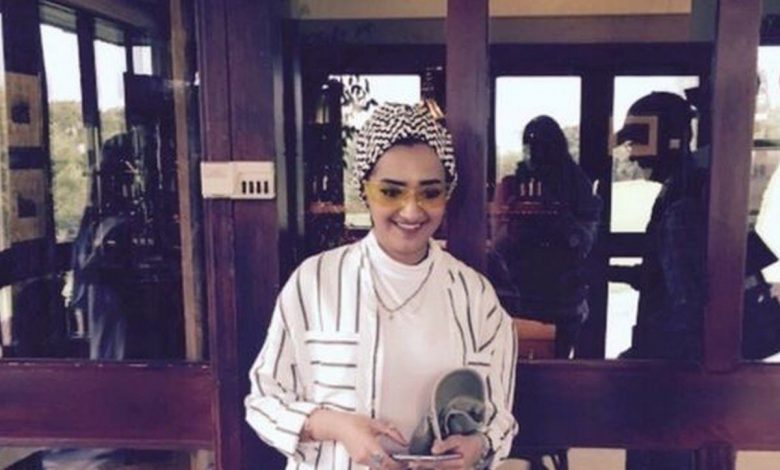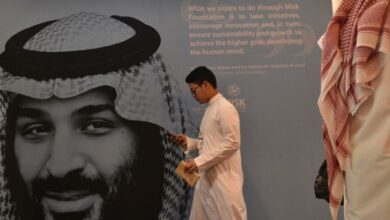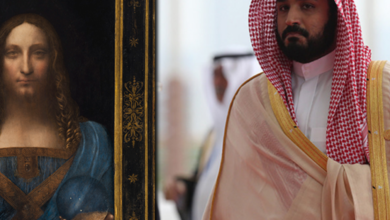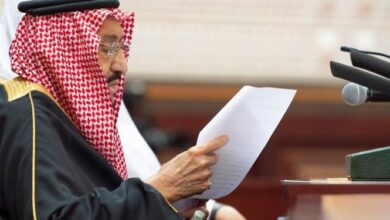HRW: Saudi Arabia practices ‘collective punishment’ against children of ex-official

Human Rights Watch slammed Saudi Arabia over its treatment of children of former top intelligence officer Saad Al-Jabri. The human rights organization said that this form of treatment is ‘collective punishment. In a report detailing human rights violations against the children of the former officer, HRW said that the children are punished with travel bans, incommunicado detention as well as secret appeal hearing against Omar Al-Jabri, 23, and Sarah Al-Jabri, 21, in prison since March 2020 in an effort to coerce their father to return to the country.
Following the soft-coup of Mohamed bin Salman against his cousin Mohamed Bin Nayef, the former officer fled Saudi Arabia to Turkey, before he eventually end up in Canada and fill a lawsuit against the Crown Prince over allegations of attempting to murder the dissident officer.
Since his departure from the kingdom over three years ago, Al-Jabri’s children and members of his extended family have been used as pawns in a high-stake feud that has drawn the attention of US President Joe Biden. It’s feared that the lawsuit will disclose sensitive information on counter-terrorism operations coordinated between Washington and Riyadh given Al-Jabri’s previous role as the kingdom’s top intelligence official.
Concerns over the fate of Al-Jabri’s children were raised last year by four US senators who signed a letter urging former US President Donald Trump to help free Omar and Sarah Al-Jabri. HRW is the latest to raise concern over their fate.
“The treatment of Omar and Sarah Al-Jabri demonstrates the lengths to which Saudi Arabia is willing to go to pressure people who refuse to fall in line,” said Michael Page, deputy Middle East director at HRW, in a report yesterday revealing details of their detention. “Detaining, imposing arbitrary travel bans, and railroading at trial two young people solely to create leverage against their father is collective punishment that demands accountability and justice.”
Saudi authorities are said to have targeted the siblings since 2017, when Sarah was 17 and Omar 18, to coerce their father to return to Saudi Arabia from exile. In June that year they were stopped from travelling to the US to continue their study, due to “security reasons”. The siblings were interrogated and had their bank accounts and assets frozen until they were convicted under dubious circumstances for “money laundering” and “attempting to escape” Saudi Arabia.
In December 2020, an appeals court upheld their sentences in a secret hearing at which the siblings were not present. Neither they nor their lawyer or other family members have been formally presented with the final court verdict detailing the reasons behind the initial judgment or the appeal decision.
Between March 2020 and January 2021, the Al-Jabri family had no information about the siblings’ whereabouts or their detention conditions. An informed source told HRW that the authorities repeatedly ignored the family’s requests for information, and barred the siblings’ access to legal counsel, visits, or phone calls. Text messages between the official and an Al-Jabri family member reveal that the family also asked directly about the children’s conditions, though the official did not respond to these questions.
Under UN guidelines, prolonged incommunicado detention is a form of cruel, inhuman and degrading punishment or treatment. The United Nations Convention Against Torture, which Saudi Arabia acceded to in 1997, prohibits torture and other ill-treatment.
HRW, which has long documented due process violations under Saudi Arabia’s criminal justice system, slammed the kingdom for failing to develop a legal code that complies with basic standards and international law. “The treatment of the Al-Jabri siblings puts Saudi’s criminal justice reform announcements to shame,” Page said. “There remains a long way to go before the Saudi justice system can credibly carry its own name.”





